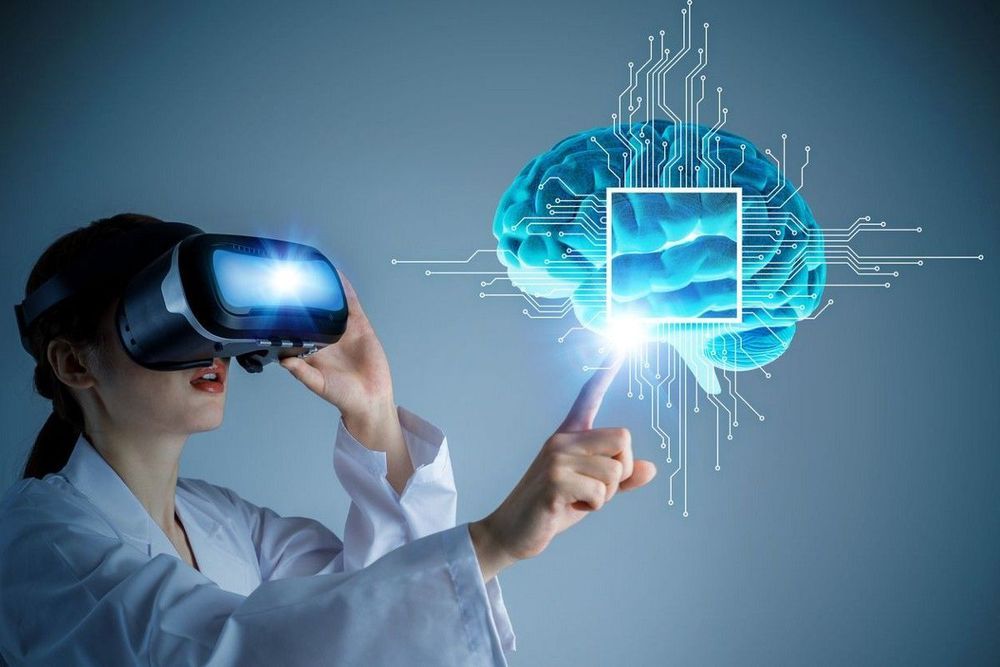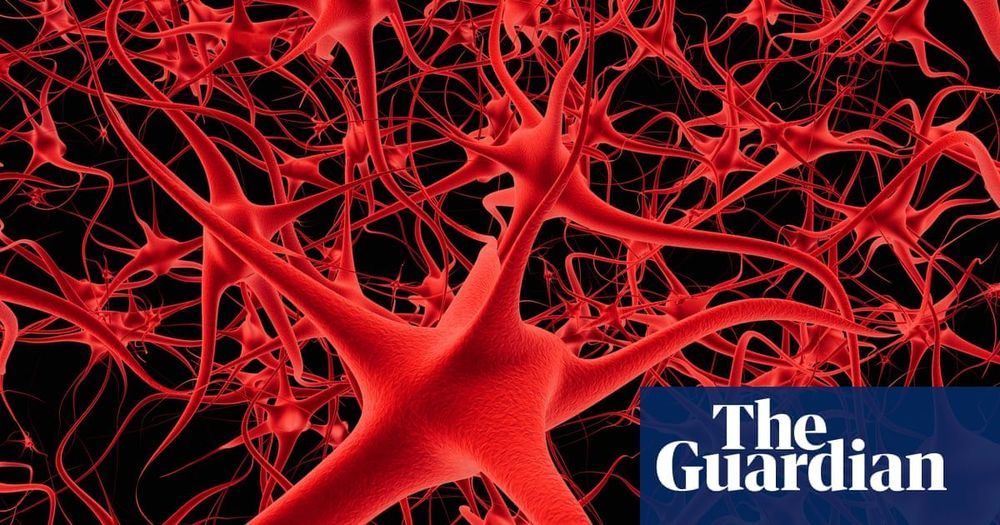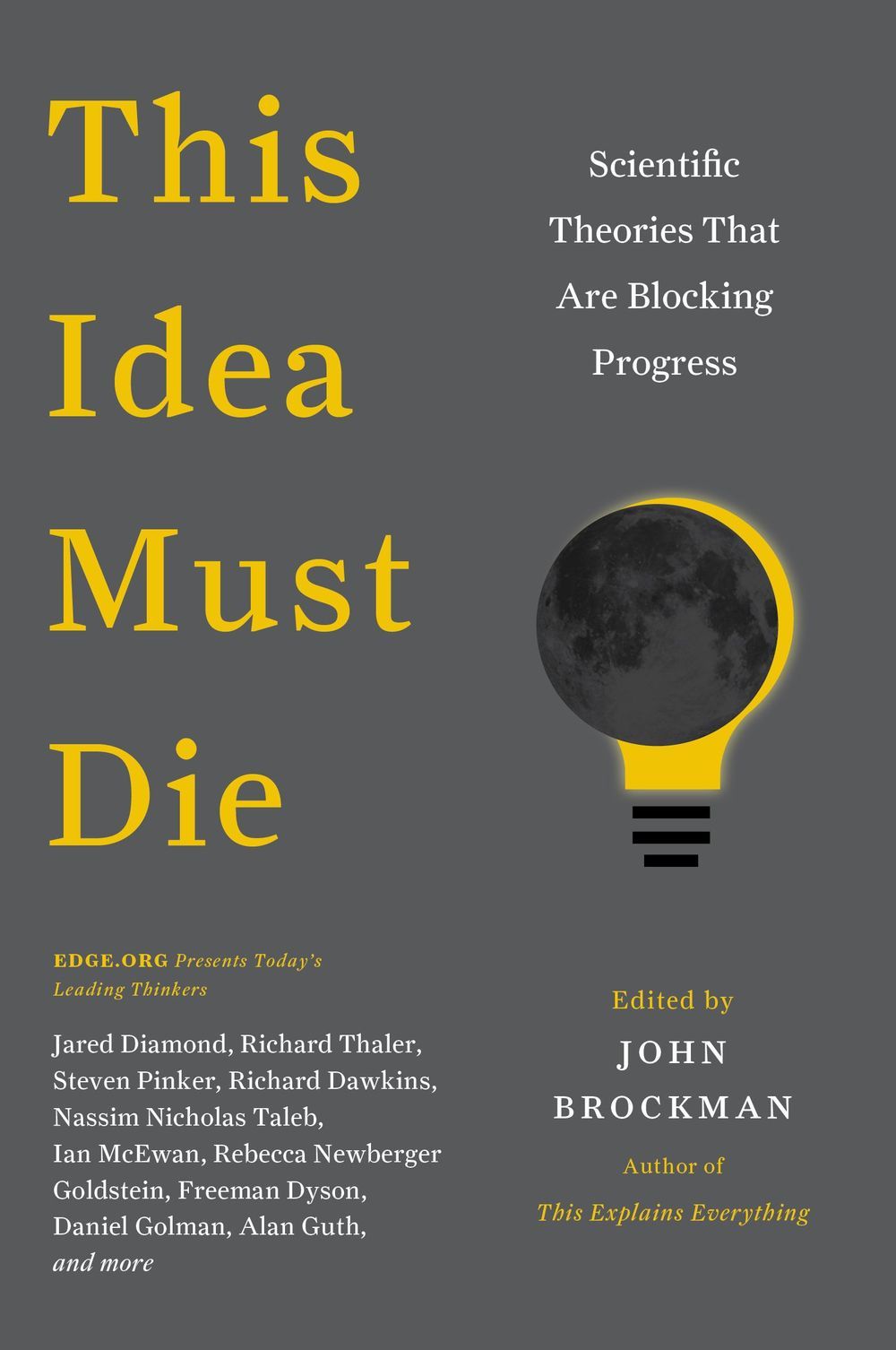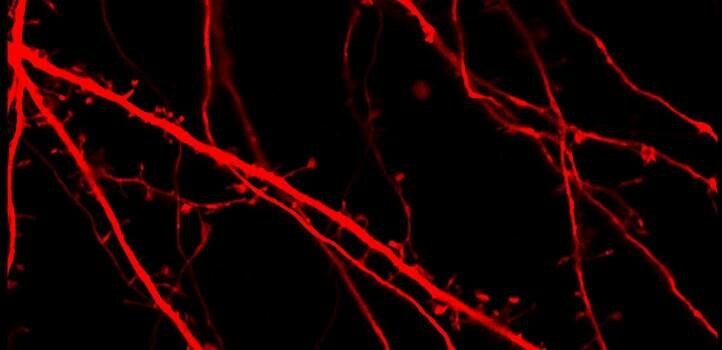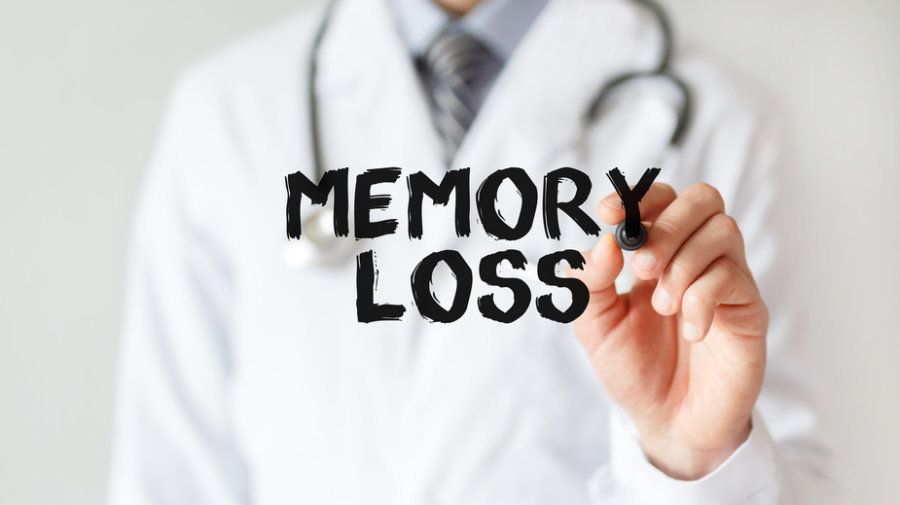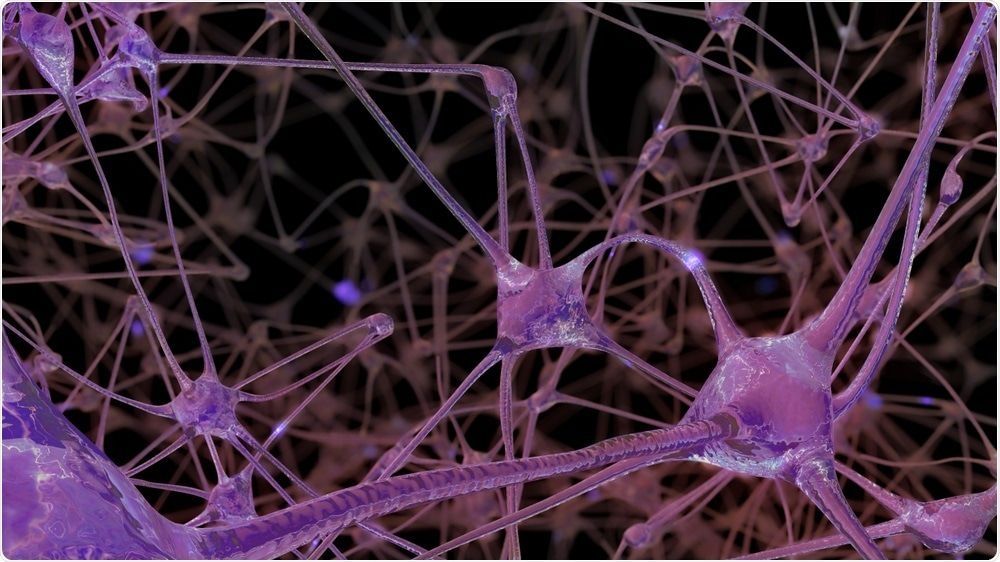Archive for the ‘neuroscience’ category: Page 708
Feb 16, 2019
‘Tumour monorail’ on the fast track for human trials
Posted by Genevieve Klien in categories: biotech/medical, neuroscience
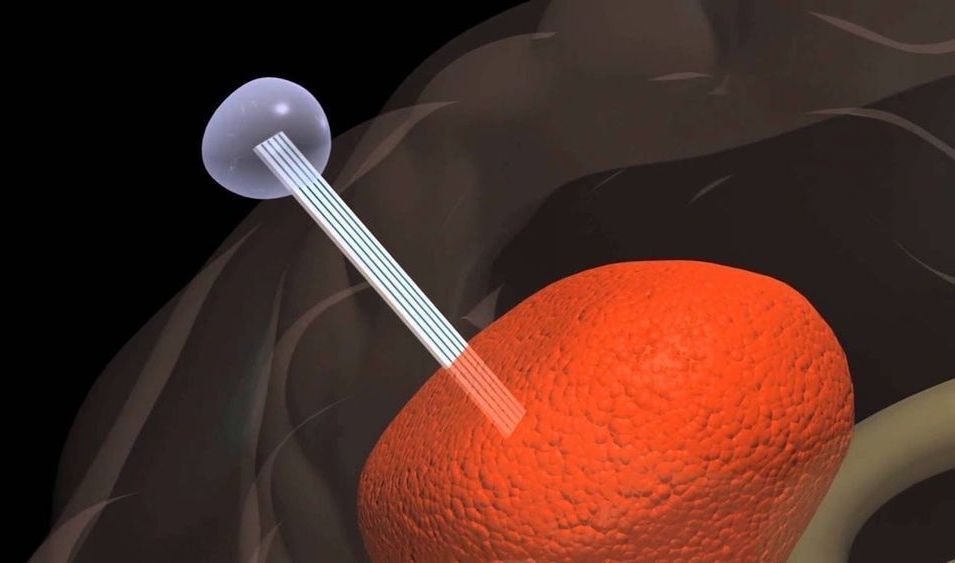
A biomedical device designed to lure tumour cells out of the brain Pied Piper-style has been awarded specialist breakthrough status by the US Food and Drug Administration (FDA). Following successful trials in rats, the device, dubbed a ‘tumour monorail’, has been put on the fast track for human trials by the FDA.
Feb 15, 2019
Brain discovery may explain mysterious cell death in Alzheimer’s, Parkinson’s
Posted by Quinn Sena in categories: biotech/medical, genetics, neuroscience
Scientists at the University of Virginia School of Medicine have identified a potential explanation for the mysterious death of specific brain cells seen in Alzheimer’s, Parkinson’s and other neurodegenerative diseases.
The new research suggests that the cells may die because of naturally occurring gene variation in brain cells that were, until recently, assumed to be genetically identical. This variation – called “somatic mosaicism” – could explain why neurons in the temporal lobe are the first to die in Alzheimer’s, for example, and why dopaminergic neurons are the first to die in Parkinson’s.
“This has been a big open question in neuroscience, particularly in various neurodegenerative diseases,” said neuroscientist Michael McConnell of UVA’s Center for Brain Immunology and Glia, or BIG. “What is this selective vulnerability? What underlies it? And so now, with our work, the hypotheses moving forward are that it could be that different regions of the brain actually have a different garden of these [variations] in young individuals and that sets up different regions for decline later in life.”
Continue reading “Brain discovery may explain mysterious cell death in Alzheimer’s, Parkinson’s” »
Feb 15, 2019
The ‘Zombie Deer Virus’ Has Hit 24 US States
Posted by Quinn Sena in categories: biotech/medical, neuroscience
The so-called “zombie disease” has been reported in deer, elk, and moose across 24 US states, according to a new warning by the US Centers for Disease Control and Prevention (CDC).
As of January 2019, at least 251 counties across the US, from northern Montana to southern Texas, have reported CWD in free-ranging cervids, members of the deer family. Farther afield, there are similar concerns for reindeer in Norway, Finland, and, to a lesser extent, South Korea.
Scientifically known as chronic wasting disease (CWD), the contagious neurological disease gets its sensational nickname because of its effect on the brain of cervids, including North American elk or wapiti, red deer, mule deer, black-tailed deer, white-tailed deer, sika deer, reindeer, and moose. Deer that have been struck with the disease suffer from drastic weight loss, abnormal behavior, stumbling, drooling, lack of coordination, aggression, excessive thirst, and a fear of others.
Continue reading “The ‘Zombie Deer Virus’ Has Hit 24 US States” »
Feb 15, 2019
New drug raises hopes of reversing memory loss in old age
Posted by Quinn Sena in categories: biotech/medical, neuroscience
An experimental drug that bolsters ailing brain cells has raised hopes of a treatment for memory loss, poor decision making and other mental impairments that often strike in old age.
The drug could be taken as a daily pill by over-55s if clinical trials, which are expected to start within two years, show that the medicine is safe and effective at preventing memory lapses.
Tests in the lab showed that old animals had far better memory skills half an hour after receiving the drug. After two months on the treatment, brain cells which had shrunk in the animals had grown back, scientists found.
Continue reading “New drug raises hopes of reversing memory loss in old age” »
Feb 15, 2019
Everything will change with the advent of the laptop quantum computer (QC)
Posted by Quinn Sena in categories: computing, information science, neuroscience, quantum physics
The transition from PCs to QCs will not merely continue the doubling of computing power, in accord with Moore’s Law. It will induce a paradigm shift, both in the power of computing (at least for certain problems) and in the conceptual frameworks we use to understand computation, intelligence, neuroscience, social interactions, and sensory perception.
Today’s PCs depend, of course, on quantum mechanics for their proper operation. But their computations do not exploit two computational resources unique to quantum theory: superposition and entanglement. To call them computational resources is already a major conceptual shift. Until recently, superposition and entanglement have been regarded primarily as mathematically well-defined by psychologically incomprehensible oddities of the quantum world—fodder for interminable and apparently unfruitful philosophical debate. But they turn out to be more than idle curiosities. They are bona fide computational resources that can solve certain problems that are intractable with classical computers. The best known example is Peter Shor’s quantum algorithm which can, in principle, break encryptions that are impenetrable to classical algorithms.
The issue is the “in principle” part. Quantum theory is well established and quantum computation, although a relatively young discipline, has an impressive array of algorithms that can in principle run circles around classical algorithms on several important problems. But what about in practice? Not yet, and not by a long shot. There are formidable materials-science problems that must be solved—such as instantiating quantum bits (qubits) and quantum gates, and avoiding an unwanted noise called decoherence—before the promise of quantum computation can be fulfilled by tangible quantum computers. Many experts bet the problems can’t adequately be solved. I think this bet is premature. We will have laptop QCs, and they will transform our world.
Feb 15, 2019
Lactate triggers genes that modify brain activity
Posted by Mike Ruban in categories: biotech/medical, neuroscience
A genome-wide study led by Dean Pierre Magistretti sheds light on the mechanisms through which lactate regulates long-term memory formation and neuroprotection.
The breakdown of sugar in non-neuronal brain cells, called astrocytes, produces lactate, which gets shuttled to neurons as a source of energy. This lactate not only supports the energy demands of neurons, but also rapidly and transiently activates multiple genes that modulate neuronal activity and regulate brain function.
Previous studies have shown that lactate stimulates the expression of genes encoding proteins involved in neuronal activity by signaling through N-methyl-D-aspartate (NMDA) receptors. Magistretti’s latest study reveals the extent to which lactate modifies gene expression in cortical neurons and also points to the mechanisms through which lactate modulates brain function.
Continue reading “Lactate triggers genes that modify brain activity” »
Feb 14, 2019
PH has brainpower for a space agency: DOST officials
Posted by Michael Lance in categories: engineering, neuroscience, space
Alvin Retamar, Chief Science Research Specialist and Project Leader of Philippine Earth Data Resource and Observation Center (PEDRO) said some institutions they have been helping are even calling for higher level training in the space sciences.
“In some areas where we are providing support they are already keen on developing aerospace engineering degree programs,” Retamar said.
Original post from ABS-CBN News
Continue reading “PH has brainpower for a space agency: DOST officials” »
Feb 14, 2019
New molecules reverse memory loss linked to depression, aging
Posted by Quinn Sena in categories: biotech/medical, life extension, neuroscience
These molecules not only rapidly improve symptoms, but remarkably, also appear to renew the underlying brain impairments causing memory loss in preclinical models.
“Currently there are no medications to treat cognitive symptoms such as memory loss that occur in depression, other mental illnesses and aging,” says Dr. Etienne Sibille, Deputy Director of the Campbell Family Mental Health Research Institute at CAMH and lead scientist on the study.
What’s unique and promising about these findings, in the face of many failures in drug development for mental illness, is that the compounds are highly targeted to activate the impaired brain receptors that are causing memory loss, he says.
Feb 14, 2019
Pill that reverses brain damage could be on the horizon
Posted by Paul Battista in categories: biotech/medical, neuroscience
Researchers at the University of Pennsylvania have made important progress in designing a drug that could recover brain function in cases of severe brain damage due to injury or diseases such as Alzheimer’s.
